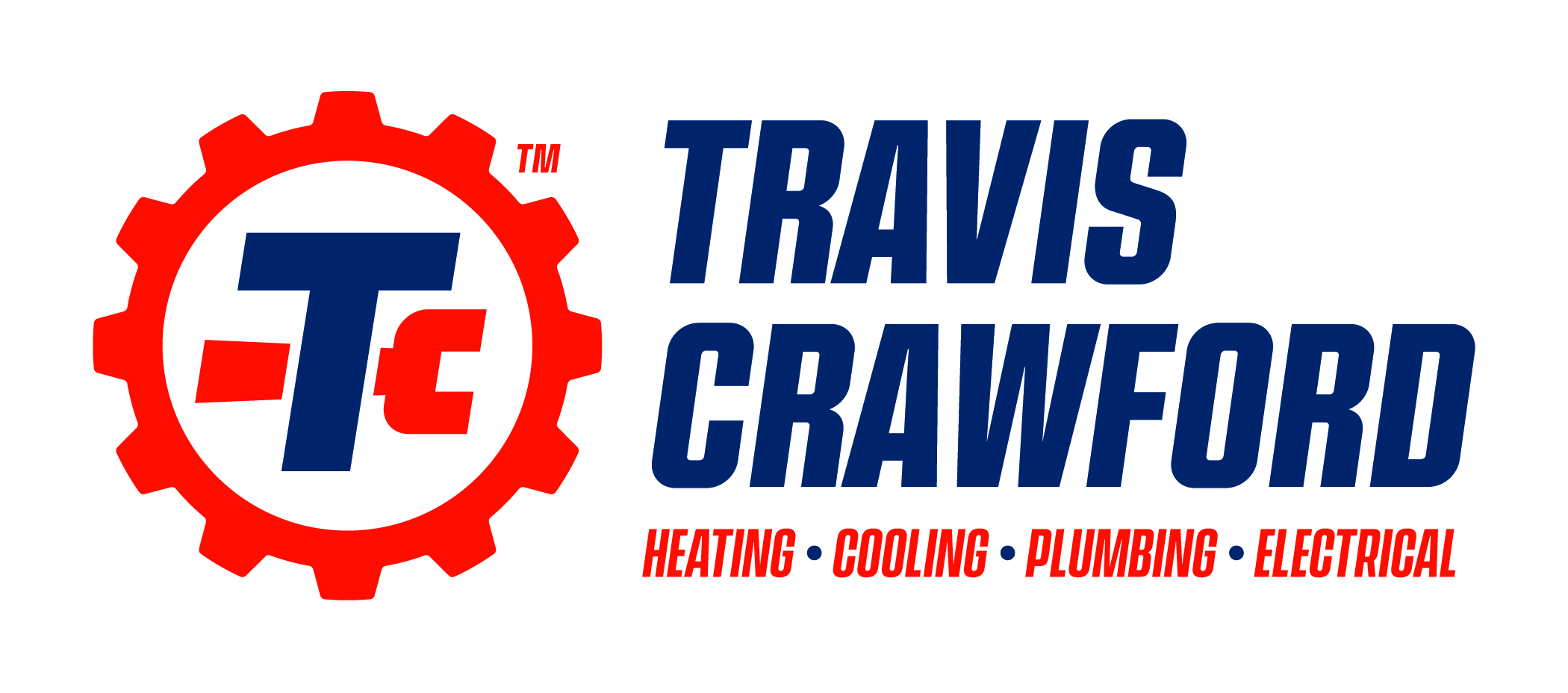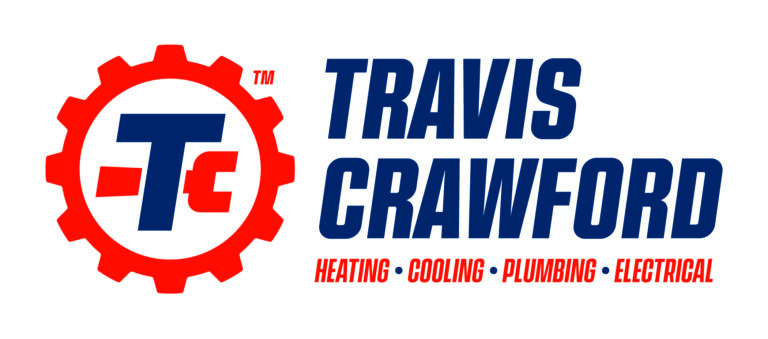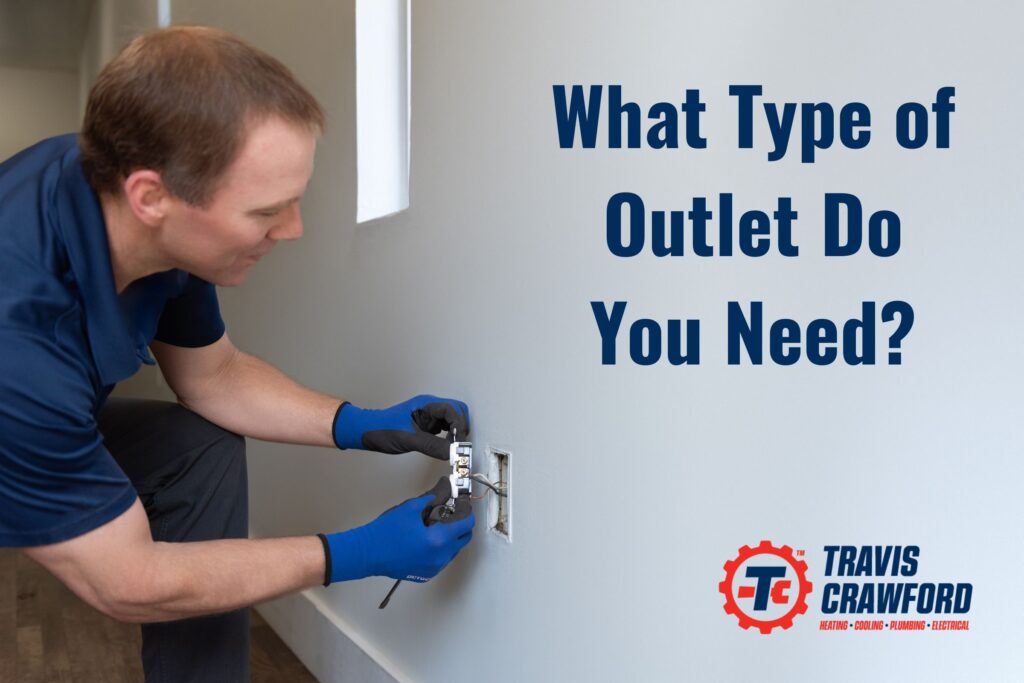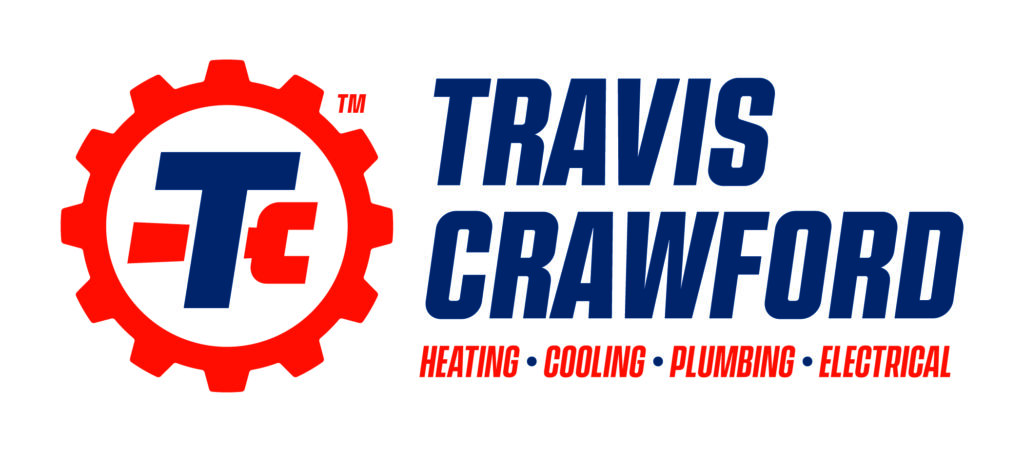In today’s homes, electrical outlets do much more than provide power. From charging smartphones to integrating smart home devices, your outlets play a major role in how you live and interact with technology. Whether you’re building a new home or planning an upgrade, choosing the best electrical outlets for home use depends on your needs, preferences, and future plans.
Here, Travis Crawford Heating, Cooling, Plumbing & Electrical breaks down the most common types of electrical outlets—standard, USB, and smart—to help you decide which ones are right for each room in your home.
Why Upgrading Your Electrical Outlets Matters
Most homes built before the early 2000s were designed around basic power needs—lamps, TVs, and maybe a microwave. But modern households in places like Charlotte, Huntersville, and Fort Mill now rely on dozens of connected devices, chargers, and appliances.
Upgrading your outlets provides several benefits:
- Improved safety: Replacing loose, outdated, or ungrounded outlets can help prevent shocks or electrical fires.
- Greater convenience: Modern outlet options eliminate clutter and meet your family’s real-world power needs.
- Future-proofing: Smart and USB outlets prepare your home for the evolving demands of modern technology.
If your outlets are worn, outdated, or mismatched, it may be time for electrical upgrade services for your outlets.
Standard Outlets: The Tried-and-True Option
Standard 120-volt outlets remain the most widely used option in homes across the Charlotte Metro. These outlets work well for everyday items like lamps, alarm clocks, and small appliances.
Pros:
- Simple, widely compatible
- Affordable to install or replace
Cons:
- Lack of built-in safety features unless upgraded to tamper-resistant or GFCI versions
- No charging ports or smart functionality
Standard outlets are still ideal in areas like guest bedrooms, garages, or closets, or any other spaces where devices are rarely charged or tech isn’t used regularly.
USB Outlets: A Modern Convenience
Tired of bulky charging blocks hogging every outlet in the kitchen or living room? USB outlet installation provides a sleek, built-in solution for charging phones, tablets, and other small electronics.
These outlets come in two common styles:
- USB-A only (older standard)
- USB-A and USB-C combination (better for modern devices)
Best locations:
- Kitchens
- Home offices
- Bedrooms
- Living rooms
Advantages:
- Frees up outlet space
- Ideal for tech-heavy households
- Eliminates the need for wall chargers
USB outlets are among the most practical electrical outlet options for home upgrades, especially in homes with multiple devices to charge.
Smart Outlets: Technology Meets Energy Control
Smart outlets take power access a step further by giving you the ability to control your devices remotely using an app, voice assistant, or automation hub. These outlets can be programmed to turn off at night, monitor energy use, or be controlled while you’re away from home.
Key benefits:
- Energy-saving features
- Supports home automation
- Can increase home resale value
Ideal uses:
- Lighting control in living areas
- Appliances in kitchens and laundry rooms
- Energy monitoring in high-use areas
Want to integrate smart outlets with other systems? We offer full smart home installation services across the greater Charlotte area.
GFCI vs. Standard Outlet: What’s Required Where?
A GFCI (Ground Fault Circuit Interrupter) outlet is designed to protect you from electrical shock, especially in wet or moisture-prone areas. They detect current imbalances and immediately shut off power to prevent harm.
North and South Carolina electrical code requires GFCI protection in:
- Bathrooms
- Kitchens (near sinks)
- Laundry areas
- Outdoor spaces
- Garages
- Basements and crawlspaces
Installing GFCIs during any outlet upgrade improves safety and helps bring older homes in Concord, Cornelius, and Gastonia up to current electrical standards.
Choosing the Best Electrical Outlets for Your Home
When deciding which outlet types are right for you, consider what types of electrical devices you use in each room, as well as any safety considerations.
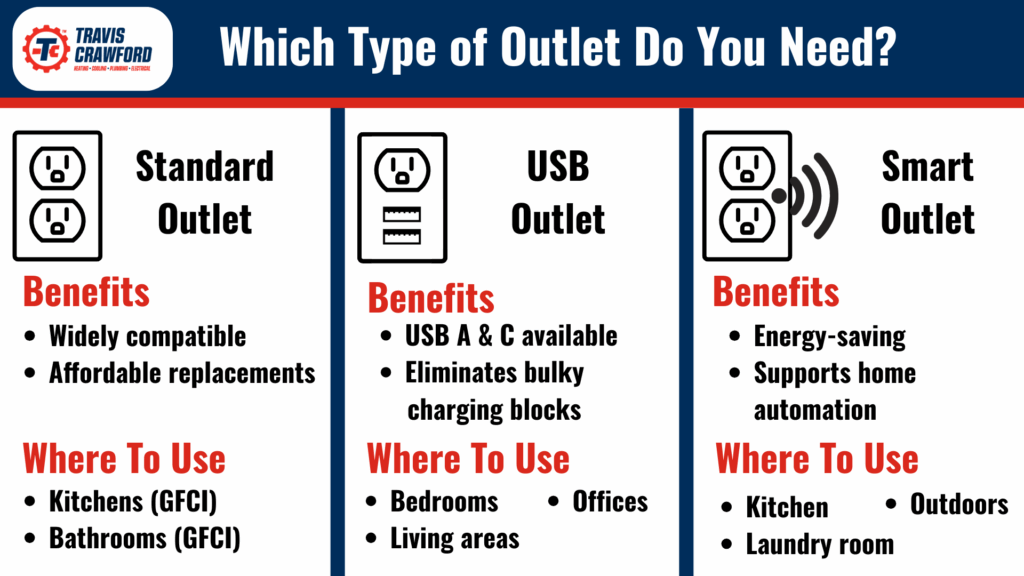
Room-by-Room Suggestions
Here are our recommendations for the best type of outlets for each living space:
- Kitchen: GFCI + USB + smart outlets (lighting/appliance control)
- Home office: USB + smart outlets
- Bedrooms: USB + standard outlets
- Bathrooms: GFCI outlets only
- Garage and outdoors: GFCI + smart outlets for lighting
When To Upgrade All Outlets
Generally, you don’t need to upgrade all of the outlets in your home unless it is an electrical safety issue. Here are some instances where we might recommend updating all of the outlets in your home:
- During a major remodel
- If your home still uses two-prong outlets
- If you notice cracking, discoloration, or loose plugs
Before making major changes, ensure your electrical panel can handle the upgrade. Our electrical panel services can help prepare your system for added capacity or smart integration.
Let Travis Crawford Handle Your Outlet Installation
Choosing the right outlet is only part of the equation—safe, code-compliant installation matters just as much. At Travis Crawford, our licensed electricians provide expert electrical outlet installation across Charlotte, Rock Hill, and the surrounding areas.
We’ll help you choose the right outlet types for your home, explain your options clearly, and install everything with care and precision. Contact Travis Crawford today to schedule outlet installation or electrical upgrades in the Charlotte Metro area.
FAQs About Electrical Outlet Installation and Upgrades
Do I need an electrician to replace an outlet?
Yes, you need an electrician to replace an outlet. Outlet installation should always be handled by a licensed electrician to ensure safety and compliance with local electrical codes.
Are smart outlets worth it?
If you’re looking for convenience, energy monitoring, or smart home integration, smart outlets are a great investment, especially when paired with other smart features.
Where should I install USB outlets?
USB outlets are most useful in areas where devices are frequently charged: kitchens, bedrooms, and home offices.
What’s the difference between GFCI and regular outlets?
GFCI outlets shut off power instantly if they detect a ground fault, protecting you from shocks—especially in wet areas. Standard outlets do not have this feature.
How often should I upgrade my home’s outlets?
Outlets should be replaced if they’re loose, ungrounded, discolored, or over 20 years old. Any time you remodel or upgrade your electrical panel is also a good time to update your outlets.
